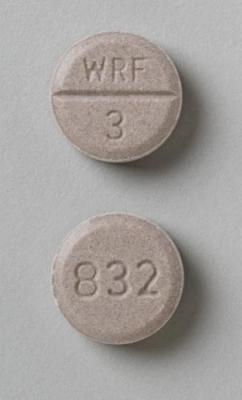
May 9, 2016 — A new study has found an increased risk of dementia in patients with atrial fibrillation (AF) that receive long-term blood thinner warfarin (Coumadin) compared to patients that use warfarin for conditions other than AF. The study of more than 10,000 patients treated with warfarin long-term found that patients with AF experience higher rates of dementia, Alzheimer’s disease and vascular dementia compared to anticoagulated non-AF patients.
The research was presented at Heart Rhythm 2016, the Heart Rhythm Society’s 37th Annual Scientific Sessions, May 4-7 in San Francisco .
AF is the most common sustained cardiac arrhythmia, with incidence rates that are growing dramatically with population aging.i, ii Many other chronic disorders of aging, such as dementia, are also increasing.
Dementia is a neurological disorder that impairs memory and other cognitive abilities, and it is now listed amongst the leading causes of morbidity and mortality in developed countries. AF can increase the risk of dementia because it exposes patients to both large and small clots that can affect brain function. Blood thinners used to prevent all forms of clots and strokes can increase the risk of both large and small brain bleeds that can also negatively impact brain function over time.
The study was conducted by the Intermountain Healthcare Clinical Pharmacist Anticoagulation Service, which is part of the Intermountain Healthcare system based in Salt Lake City. Researchers enrolled a total of 10,537 patients with no history of dementia prior to the study and who were treated with a blood thinner for AF and non-AF conditions like valvular heart disease and thromboembolism on a long-term basis. Other variables included age, hypertension, diabetes, hyperlipidemia, renal failure, smoking history, prior myocardial infarction or cerebral vascular accident, and heart failure. Participants were aged 18 years and older.
During a follow-up of approximately seven years, all types of dementia increased in the AF group more than the non-AF group. In both groups, however, the risk of dementia increased as the time in therapeutic range (TTR) decreased or became more erratic. When warfarin levels were consistently too high or too low, dementia rates increased regardless of why patients were receiving a blood thinner. However, regardless of the adequacy of anticoagulation, AF patients consistently experienced higher rates of all forms of dementia. This finding indicates that the efficacy of therapy is strongly associated with dementia. Of note, researchers found that patients younger than 70 years tended to be the most susceptible to the risk of dementia.
“Our study results are the first to show that there are significant cognitive risk factors for patients treated with warfarin over a long period of time regardless of the indication for anticoagulation,” said lead author T. Jared Bunch, M.D., director of heart rhythm research at Intermountain Medical Center Heart Institute and medical director for heart rhythm services for the Intermountain Healthcare system.
This study is important in many ways, Bunch said. “First, as physicians we have to understand that although we need to use anticoagulants for many reasons including to prevent stroke in AF patients, at that same time there are risks that need to be considered some of which we are only right now beginning to understand. In this regard, only those that absolutely need blood thinners should be placed on them long-term,” he added. “Second, other medications like aspirin that may increase the blood thinners effect should be avoided unless there is a specific medical need. Finally, in people that are on warfarin in which the levels are erratic or difficult to control, switching to newer agents that are more predictable may lower risk.”
In further exploring the association between AF, anticoagulation and dementia, this study offers insight into future treatment for patients with AF and for those taking a blood thinner for other needs. With AF raising the risk of dementia in addition to and independent of anticoagulation, how the abnormal rhythm is treated may be a way to lower dementia risk.
For more information: www.hrsonline.org


 August 28, 2023
August 28, 2023 









